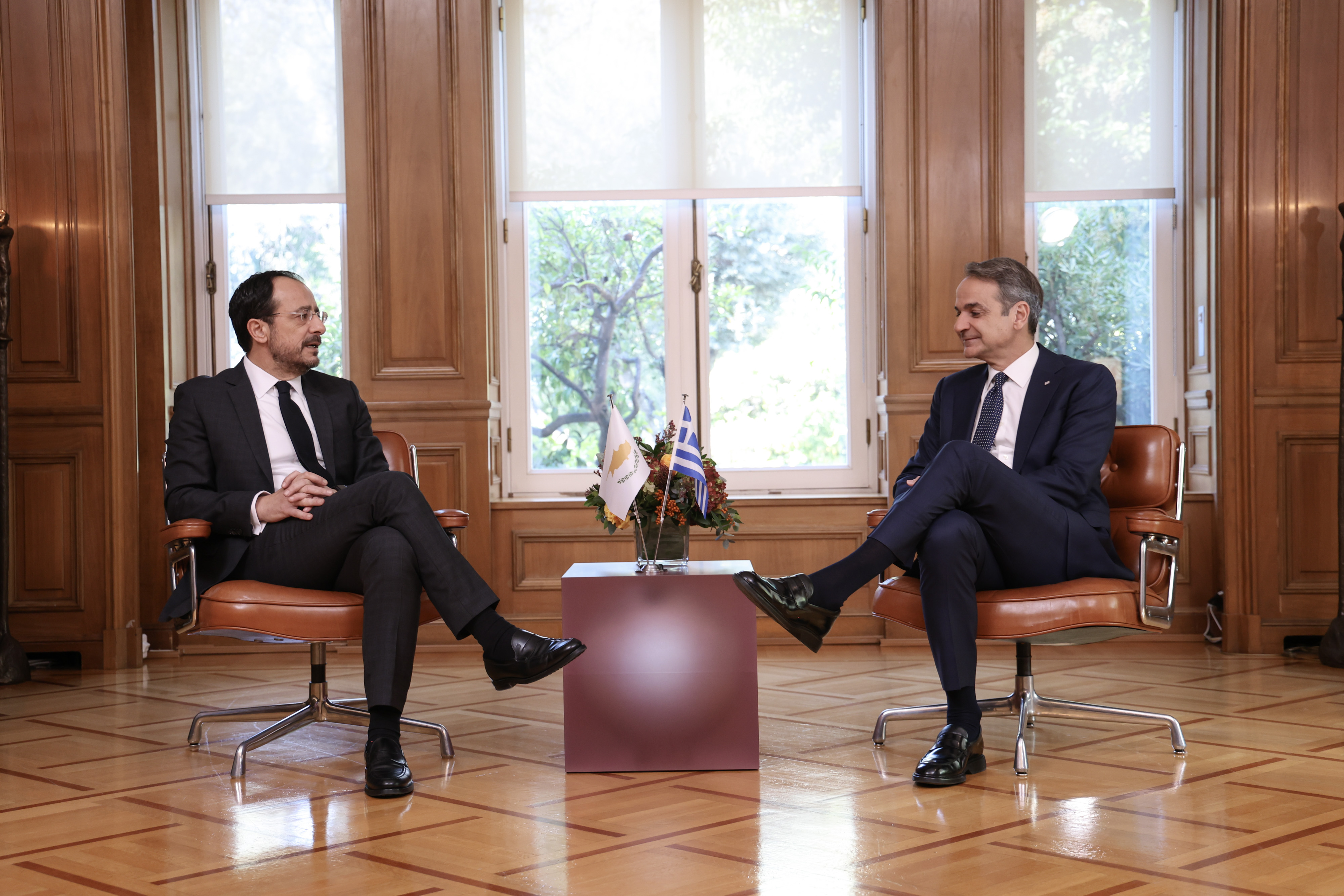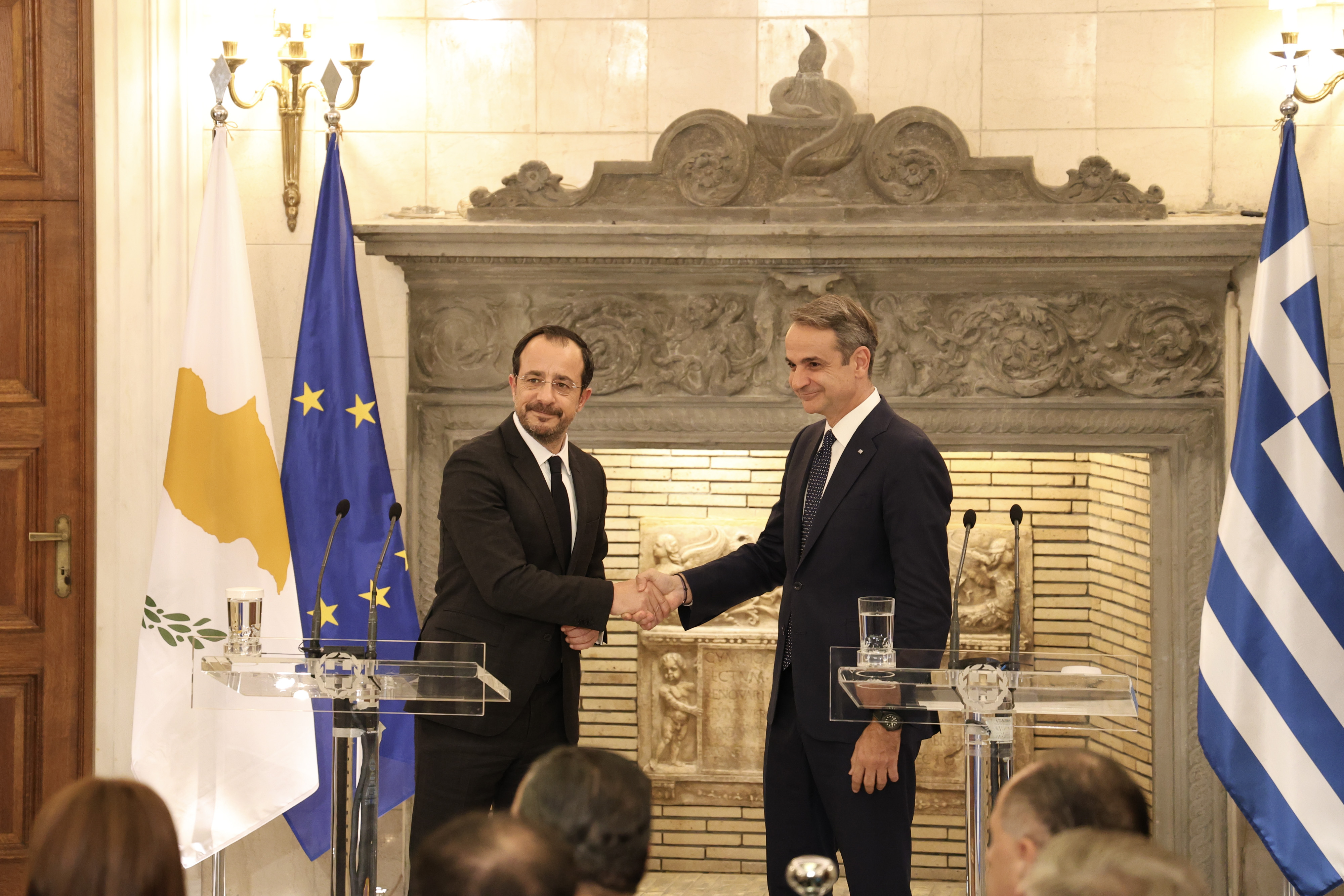President Nikos Christodoulides met Greek Prime Minister Kyriakos Mitsotakis on Wednesday at the Maximos mansion in Athens, where both leaders reaffirmed close cooperation between the two governments ahead of Cyprus assuming the Presidency of the Council of the European Union in the first half of 2026.
Speaking after the meeting, President Christodoulides said Cyprus had benefited from Greece’s experience in public administration reforms.
He noted that Nicosia was applying know-how and practices developed in Athens to improve internal governance.
“We have learned a great deal from key initiatives of the Greek government in matters of internal governance, and I want to thank you publicly for this cooperation. We are making use of the expertise developed here in Greece,” he said.
Christodoulides added that the meeting came fifty days before Cyprus takes over the rotating Presidency of the EU Council. He said Cyprus would work to strengthen the European Union’s strategic autonomy while deepening the bloc’s ties with the wider Middle East.
“Cyprus and Greece have a very important role to play in enhancing EU relations with the region,” he stated.
Prime Minister Mitsotakis welcomed Christodoulides and the Cypriot delegation, emphasising the importance of coordination between the two governments.

“It is very important that we are able to better coordinate our governmental work, especially in view of the very significant moment for Cyprus when it assumes the EU Presidency in the first half of 2026,” Mitsotakis said.
He also expressed satisfaction over the size and level of the Cypriot delegation, which included members of the Cabinet, noting that the discussions would cover several key areas of cooperation between the two countries.
The meeting underlined the ongoing partnership between Greece and Cyprus on European and regional matters, particularly regarding governance reforms, EU policy coordination, and Mediterranean diplomacy.
Both leaders stressed that their cooperation would continue as Cyprus prepares to take a leading role within the European Union.






Click here to change your cookie preferences